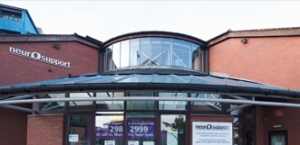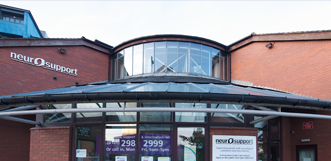
Liverpool-based charity, Neurosupport, has marked its fourth annual Head Matters Tea Party as part of National Brain Awareness Week.
The charity was established 21 years ago by Walton neurologist Dr Ian Williams and continues to provide support and advice for people suffering from any of more than 300 conditions relating to the brain.
Carers Advocate Emma Seasmangre told JMU Journalism: “We are amazing, we are world changers and we are significant in that we are the only charity of its type in the UK, supporting people from all over the nation.”
The centre, which is part of Cheshire and Merseyside’s rehabilitation hub, provides individuals and their families with numerous services aimed at improving their quality of life after diagnosis.
Services which have been made available include counselling, lessons in basic English and Mathematics, as well as weekly coffee mornings.
More recently the centre has started to develop employment and advice services; and they are now hoping to be able to provide NVQ courses for the next academic year.
Gerry Tyrrell, the Services Manager for Neurosupport, told JMU Journalism: “The employability was borne out of people coming in with employment issues. Not only couldn’t they get a job but they were struggling to stay in their current employment.
“Wherever there is a gap we try to fill it. The centre is accessible and people like coming here.”
As the centre does not focus solely on one neurological condition, it does not fall into a category for any form of funding. The centre in Norton Street has volunteers who work in all areas in order to deliver life-changing services.
The Head Matters Tea Party day involved guest speakers such as consultant neuropsychologist, Professor Gus Baker, plus raffles and ea and cakes.
Carolyn Garlick, who organised the event, told JMU Journalism: “Because it is a touchy subject we like to raise awareness in a really fun way.
“We don’t just support someone for three, six or nine months; we support someone for their whole life.”
She added: “We are Liverpool’s best kept secret – unfortunately, not enough people know about us. But the work that we do is vital. Today is really just about raising a bit more awareness of brain illnesses and their effects.”

